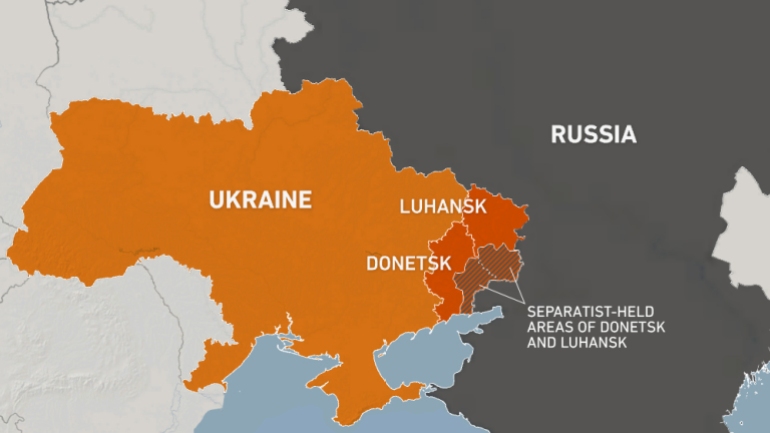
A Russian military incursion into Ukraine would likely result in sovereign ratings of both nations being placed on a review for a downgrade, Moody’s Investors Service said.
Russia’s military build-up along Ukraine’s border has increased the risk of further escalation and armed conflict. This could result in western countries imposing additional sanctions on Russia, which would be credit-negative for the country, Moody’s said in a report on Wednesday.
Although tensions remain high, Moody’s base case scenario does not assume Russian incursions into Ukraine. However, if the situation were to deteriorate, the credit impact of new sanctions on Russia would depend on the sectors targeted, their scope and the degree of co-ordination among western countries.
While Russia’s ability to respond to and operate under sanctions has strengthened in recent years, significant additional economic and financial sanctions — such as controls on access to key imports needed to modernise its economy — could result in downwards pressure on its Baa3 stable credit rating.
While unlikely, the imposition of severe and co-ordinated sanctions that hinder the execution of cross-border payments in a timely manner would pose “more immediate risks to Russia’s credit profile”, Moody’s said.
“Russia has significant buffers that help to insulate its credit profile in the short term from the effects of most new sanctions,” said Evan Wohlmann, vice president and senior credit officer at Moody’s.READ MOREEmmanuel Macron says Russia agreed to ‘freeze the game’ with no Ukraine escalationUS troops arrive in Poland as tensions between Russia and Ukraine growRussia could invade Ukraine ‘as soon as tomorrow’, US national security adviser says
“Still, while an unlikely and very remote scenario, severe sanctions that lead to a delay in the repayment of Russia’s external debt obligations could result in a default under our definition and a downgrade of the rating.”
Ukraine, on the other hand, has strengthened its fiscal and external buffers since the last military escalation with Russia in 2014-15, and this would help the country withstand the immediate effects of a conflict.
However, “material downwards credit pressure” could develop over time unless it receives “significant external financial support” to shore up the country’s financing position, given its sizeable external refinancing needs, Moody’s said.
Russia and Ukraine have been at loggerheads since 2014, when Russia annexed Crimea. Concerns have been rife over a possible Russian invasion as the country increased its troop presence along the Ukrainian border. Western nations have warned of serious consequences for Russia if it were to invade, including the imposition of financial and economic sanctions on Moscow.Russia has significant buffers that help to insulate its credit profile in the short term from the effects of most new sanctionsEvan Wohlmann, vice president and senior credit officer, Moody’s
US troops landed in south-east Poland near the border with Ukraine on Sunday after President Joe Biden ordered the stationing of 1,700 soldiers there. The move is widely seen as being aimed at deterring a possible invasion. Hundreds more are expected to arrive about 90 kilometres from Poland’s border with Ukraine.
Nato and European nations are attempting to find a diplomatic solution to the conflict that is also threatening to disrupt energy supplies to Europe.
An escalation of military tension could put up to 155 billion cubic metres per year of natural gas imports to Europe at risk, if the conflict causes Russia to halt deliveries. The figure corresponds to 30 per cent of Western Europe’s annual gas demand, Rystad Energy said on Wednesday.
Although a total shutdown of Russian piped gas is unlikely, European gas markets are entering the final stretch of winter in a precarious position. Gas stocks are at five-year lows, international LNG prices are highly volatile and the Nord Stream 2 pipeline from Russia to Germany is not expected to be operational until the second half of this year.
“If Russian exports were shut off entirely, Europe would struggle to meet its gas needs,” the Rystad report said.
“Eastern Europe would be most severely hit as the region is the most reliant on Russian imports, whereas Western Europe could, in theory, fill the void with increased LNG imports, primarily from the US.”
In a last ditch diplomatic effort, French President Emmanuel Macron this week travelled to Moscow. On Tuesday, he announced a breakthrough in his quest to defuse the Ukraine crisis, saying he had won assurances from Russia not to escalate matters.
Mr Macron said his trip had succeeded in its aim of “freezing the game” to allow Nato and the Kremlin to discuss their future.
“This objective for me is fulfilled,” he said after travelling to Kiev on Tuesday for talks with Ukrainian leaders. “I obtained that there will be neither a worsening nor an escalation.”


